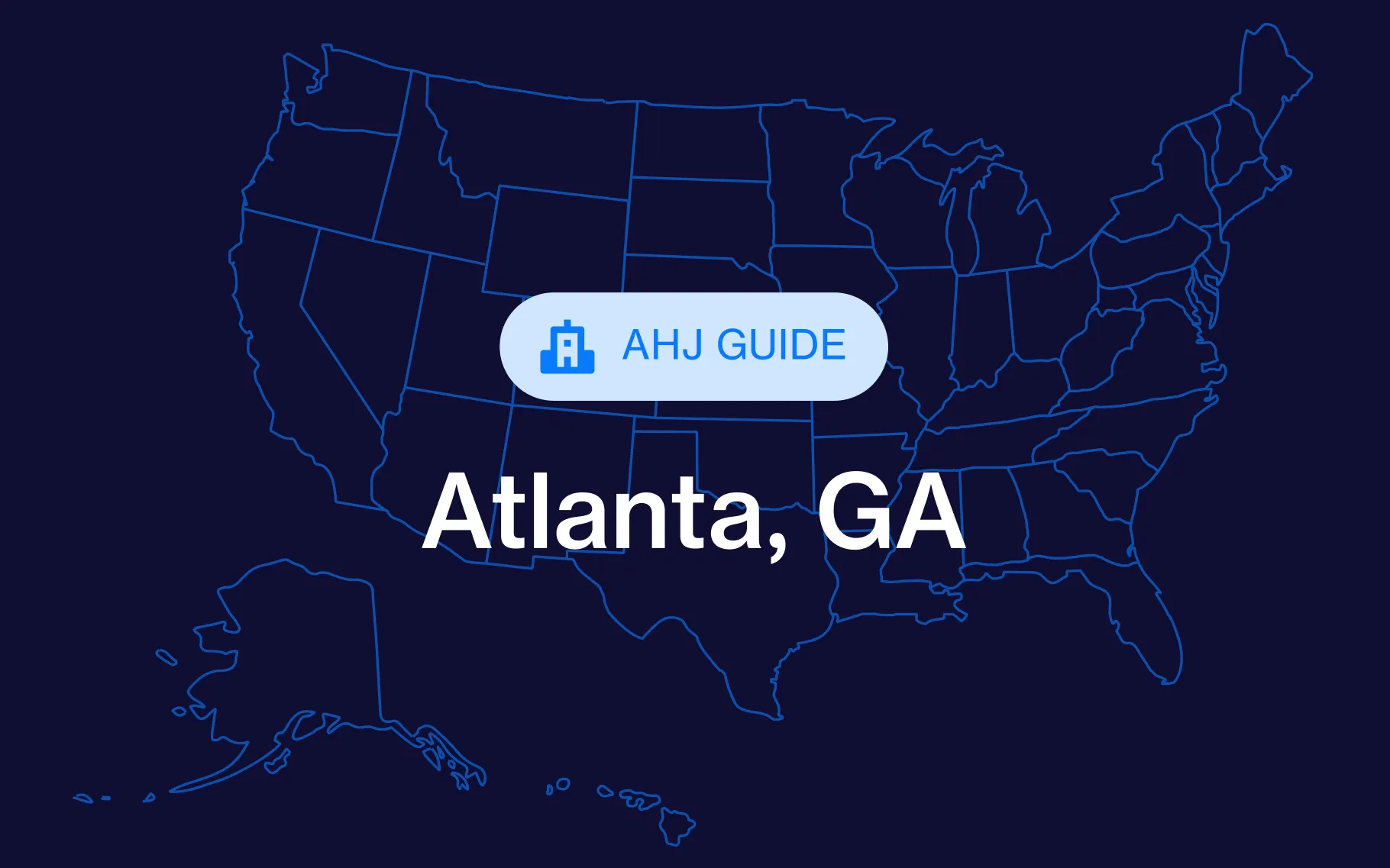In Georgia, each city and county operates its own permitting structure, so even if statewide codes are familiar, the local variations will define your process and timeline.
Learn everything you need to know about obtaining building permits in Georgia — from permitting requirements and costs to inspections and common pitfalls.
Who issues building permits in Georgia?
Georgia uses a local issuing model. Each city or county building department handles permits for its jurisdiction.
Here are examples:
- Atlanta: Office of Buildings handles building permits and inspections for the city
- Lawrenceville: Planning & Development Department manages permits through an online portal
- Cherokee County: Permits issued to licensed contractors or approved owner-builders
- Troup County: Building, Planning, and Zoning Department handles an array of permits, from swimming pools and accessory structures to erosion control
Georgia building permit requirements
Under Georgia law, if you're doing the following, you must apply for a permit according to local regulations:
- Constructing, enlarging, altering, repairing, moving, demolishing, or changing occupancy of any structure
- Installing, modifying, or replacing any electrical, gas, mechanical, or plumbing system under the IRC (residential) or IBC (commercial) with Georgia-specific amendments.
Exceptions include minor cosmetic work such as paint, carpeting, countertops, or minor appliance swapping. But always confirm with your local AHJ — permit requirements vary. For example, many jurisdictions require permits for accessory structures over 1,000 sq ft or fences over a certain height.
While requirements differ by jurisdiction, most permit applications require:
- A completed application form
- Scaled construction and site plans
- Trade-specific documentation (electrical, plumbing, mechanical)
- Licensed contractor information or owner-builder affidavit
- Special inspection or geotechnical reports where applicable (e.g., flood zones or commercial structures)
- Any zoning or environmental approvals (especially for grading or stream buffer impacts)
Georgia building permit costs
Here’s what you can expect in a few representative areas:
Fees often include plan review, execution, inspections, and sometimes tech or administrative surcharges.
Unique considerations when permitting in Georgia
Licensed contractors only — or owner-builder
Most jurisdictions require state-licensed contractors to pull permits; owner-builders must sign affidavits and accept responsibility.
Impact, erosion, and flood considerations
Counties like Cherokee enforce sediment control plans and erosion inspections for new builds or developments. In Troup County, grading, floodplain, and stream controls are integrated into the permit process.
Technology fees and minimum charges
Some cities (e.g., Smyrna, Savannah) charge additional flat tech fees that can shift the total cost considerably, especially on small jobs.
Strict CO requirements
Certificates of Occupancy are required before use — even for residential projects in jurisdictions like Fayetteville and Cherokee County.
Digital permitting adoption varies
Cities like Lawrenceville and Cherokee County support online permitting, while others may still require paper or in-person submissions.
How to get a building permit in Georgia
- Verify jurisdiction
City or county determines your process. - Meet licensing requirements
Ensure your contractor is licensed or file an owner-builder affidavit if allowed. - Submit documentation
Application, plans, trade details, affidavits, and special studies. - Use digital portals where available
E.g., Lawrenceville’s online portal or Savannah’s submission tools. - Pay associated fees
This includes tech, plan review, and impact charges. - Coordinate plan review
Revisions may be required; respond quickly. - Permit issued and posted
Display it per local regulations. - Schedule inspections
At key project milestones. - Obtain CO
Required in most jurisdictions for occupancy.







